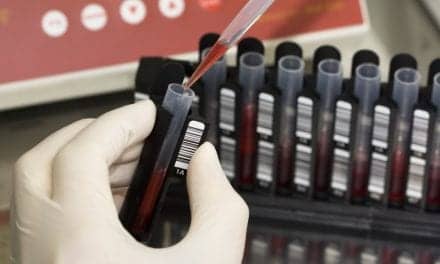
These data “show that variant Ciz1 is a strong candidate for a cancer-specific single marker capable of identifying early-stage lung cancer within at-risk groups without resort to invasive procedures,” the authors conclude.
In the first group analyzed in the research, when a threshold set at the mean of noncancer variant Ciz1 levels was used, the presence of the variant protein discriminated lung cancer patients from cancer-free individuals with an accuracy of 98%, irrespective of cancer stage.
When variant Ciz1 levels were measured among a second group of 160 individuals, the presence of the protein distinguished patients with stage 1 non-small-cell lung cancer from age-matched smokers or individuals with benign lung nodules with an accuracy of 95%.
Among this patient group, variant Ciz1 measurement distinguished lung cancer patients from disease-free smokers, patients with benign lung nodules, and healthy controls, with respective specificities of 76%, 71%, and 74%.
This, says Dawn Coverley (University of York, UK) and colleagues, indicates that variant Ciz1 is highly specific for lung cancer and “holds considerable promise as the basis of a blood test for early-stage lung cancer.” She added: “We think that the test will be especially powerful when combined with x-ray or CT [computed tomography] imaging, and will offer doctors an alternative way to test whether an abnormal growth is cancerous.”







